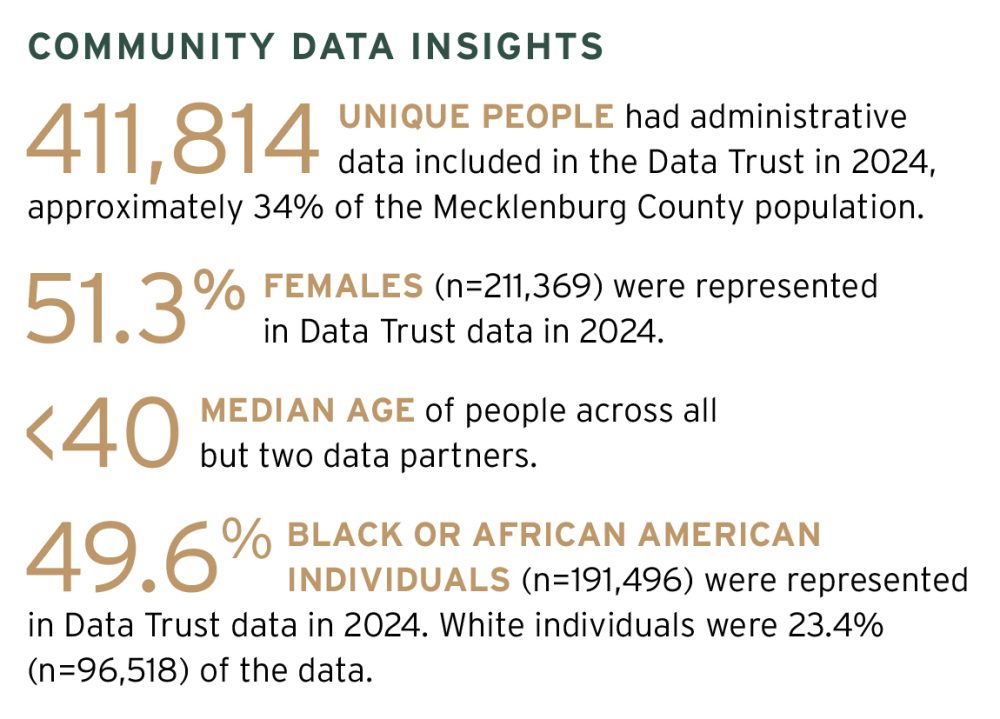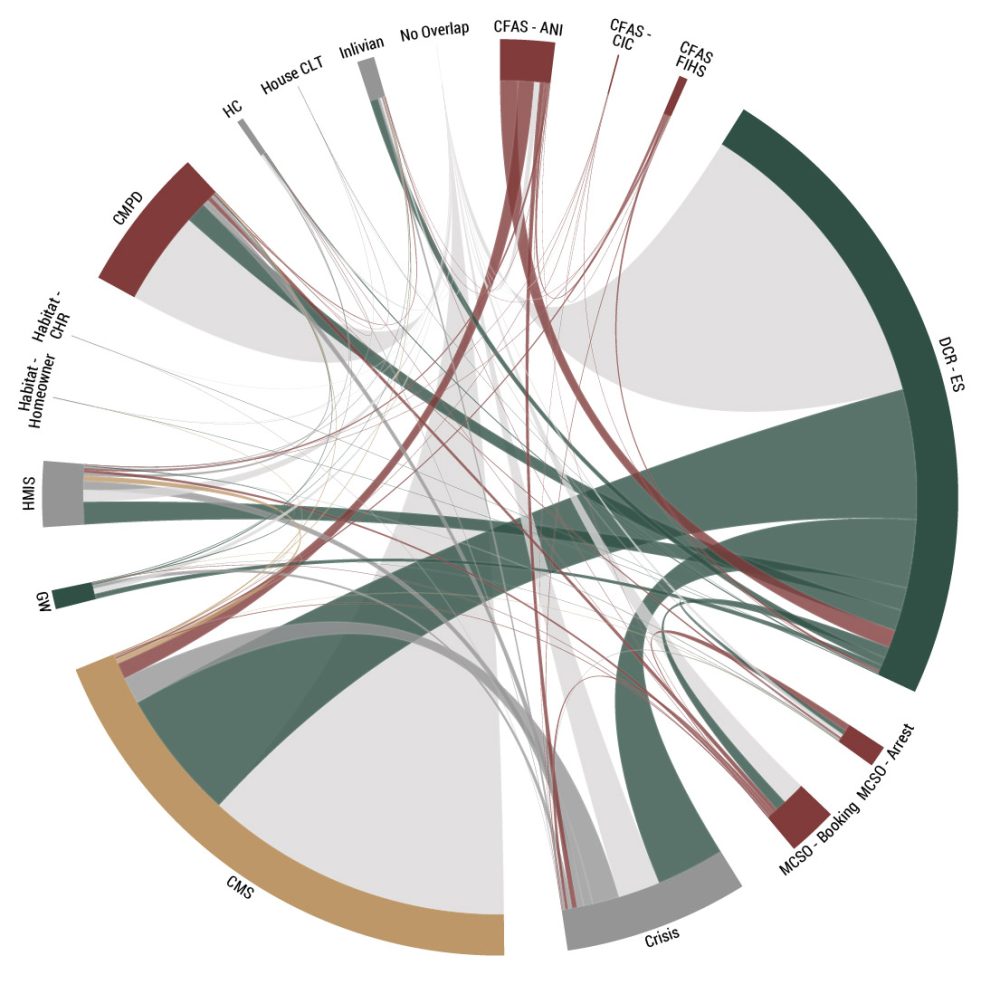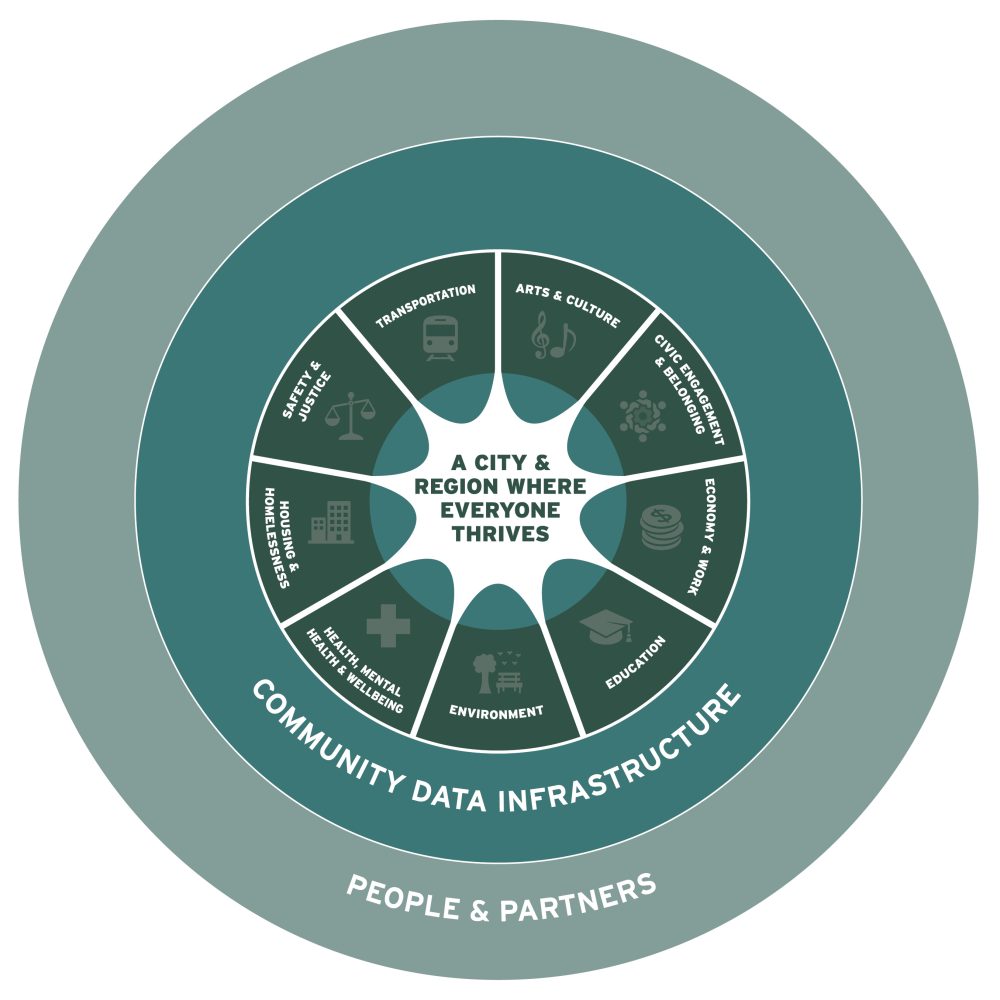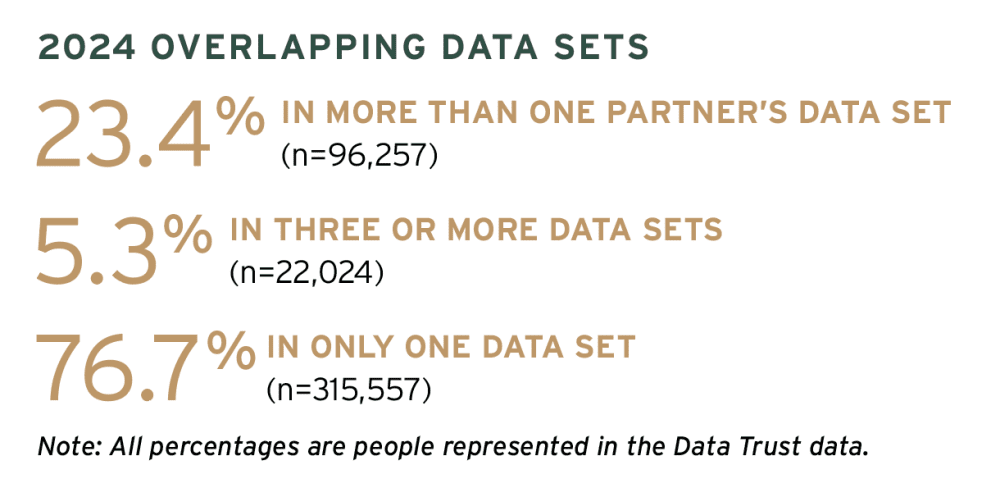2025 State of Our Data Report

The Charlotte Urban Institute and Regional Data Trust have studied the growth and challenges of our 14-county region for decades. We work closely with community partners and a variety of stakeholders on issues ranging from homelessness to preserving our environmental resources. We exist to equip changemakers in our communities and region with data and information that kindles community transformation to make a difference in people’s lives.
Ultimately, as a nonpartisan, applied research and community outreach center, we not only seek solutions to the social, economic and environmental challenges facing our communities, we also work to help people in the community understand our findings through data-driven insights.
Why does this report matter?
Our data are people. Whether describing people or the places they live, the data we hold, curate and use for research and decision-making reflect real human lives. Much of Data Trust data is collected during very difficult points in people’s lives. This brings and added responsibility to protect data privacy and use, so it benefits the people reflected.

Understanding representation is essential. When compared to Mecklenburg County, people who identify as Black or African American, or who are captured in multi-racial categories are overrepresented in Data Trust data. People in the Data Trust data are also disproportionately located in lower income, “crescent” neighborhoods in Charlotte-Mecklenburg. Understanding representation matters for accurate research and interpretation. It matters in the recruitment of new data partners, board and committee members. And it points to the importance of understanding data in context and using multiple types of data to get a better picture of the people and their experiences in our community.
Organizations and programs in our community are connected by the people they serve. The ability to see connections across programs and partners allows researchers, leaders, and advocates to ask questions about them to better coordinate services, observe gaps, and better serve those in our community that are engaged in multiple organizations and systems. And importantly, since most of our data are collected on difficult days in people’s lives it shows us that some people and neighborhoods are more likely or less likely to to experience the quality of life we seek for everyone in the region.



In a chord diagram (pictured right), the greater the thickness of the chords, the more people represented. The diagram shows the overlap across all datasets in 2024. Organizations and programs are connected in a variety of ways across the people they serve, presenting opportunities to understand the nature of the overlap and more comprehensively develop and consider solutions that span organizations and focus on people.
Our Community Data Infrastructure:
• The Institute and Data Trust work across nine interconnected domains that influence quality of life and thriving at individual, organizational, and community levels. Our community data infrastructure supports understanding and improving nine interconnected domains that influence quality of life and thriving at individual, organizational and community levels.
• Our community data infrastructure includes the data tools we provide like our integrated administrative data system, the Charlotte-Mecklenburg Quality of Life Explorer, and the emerging Regional Explorer. It also includes the services, technology, policies, and practices that ensure access, security, ethical use and impact.
• And crucially, our community data infrastructure is inextricably linked to the people and partners who contribute data, expertise, and context, join us in research and dialogue, and put the tools, services, and information to work for our communities and region. These relationships not only support our work, they are also what makes our infrastructure notable.
About the Charlotte Urban Institute + Data Trust
The Charlotte Urban Institute is our region’s applied research and community outreach center. The Charlotte Regional Data Trust is a community-university partnership that links data across service and organizational silos to make connections visible and provide information our community can act on. Together, the Institute and Data Trust bridge knowledge and action, equipping changemakers in our Charlotte region so all of our communities thrive. Equipping changemakers requires infrastructure – the components, systems, and practices necessary to consistently, effectively and ethically put data to use for community benefit. The State of Our Data Report provides our communities, partners, and stakeholders with an accessible summary of this enduring infrastructure, and particularly the data we hold in trust and why it matters.